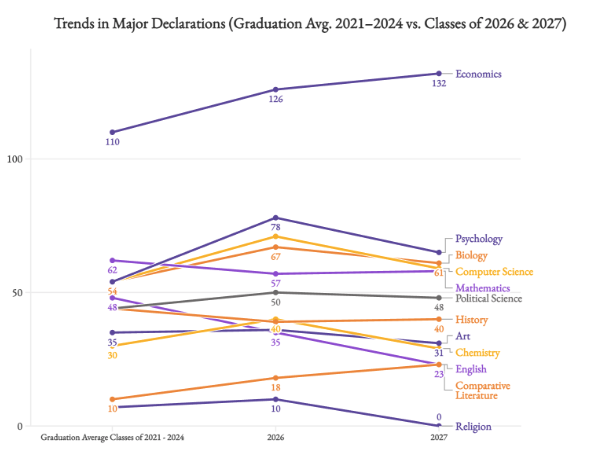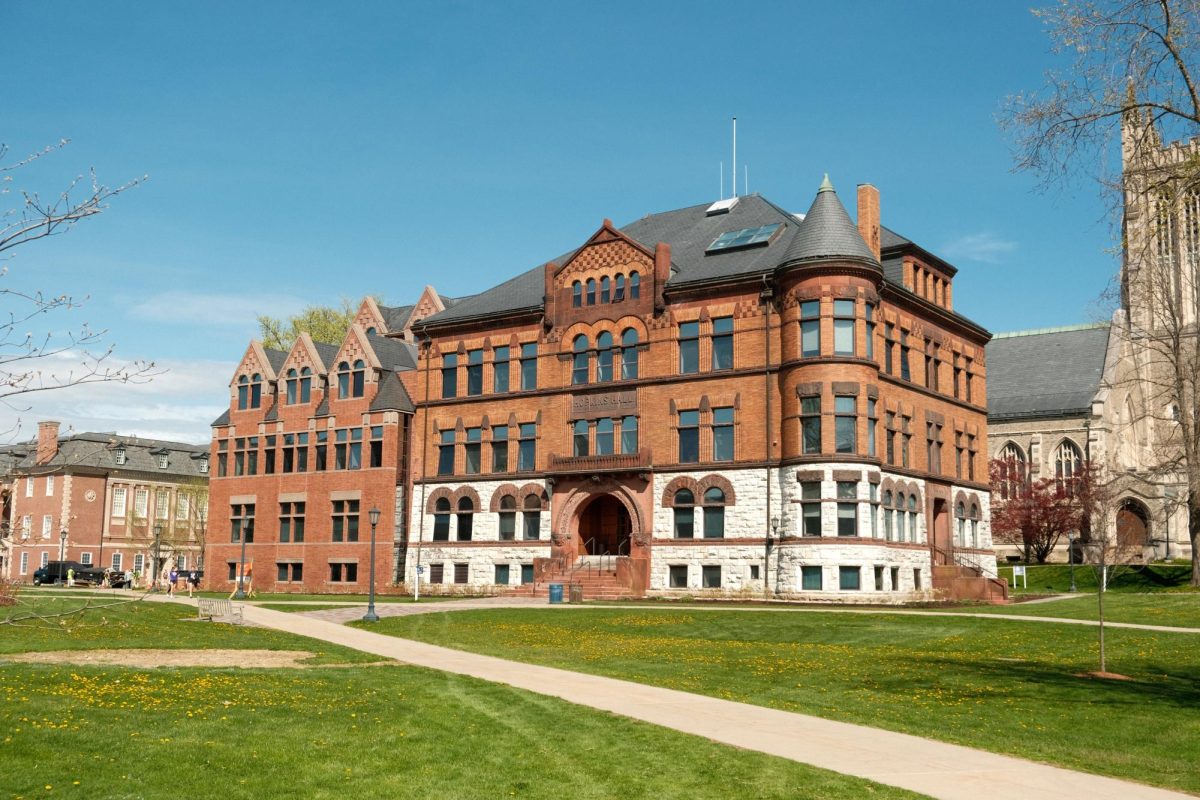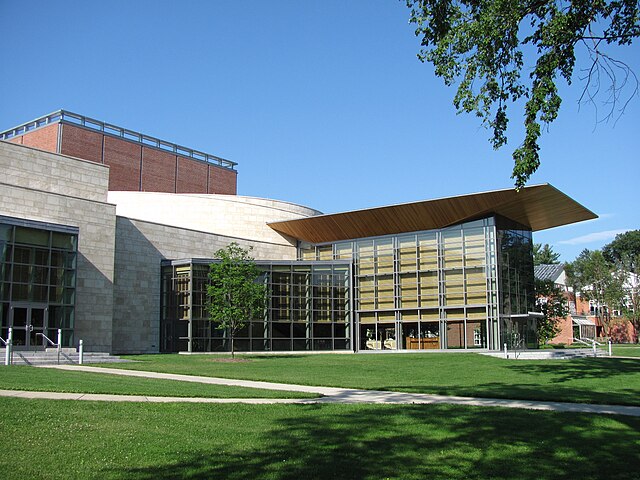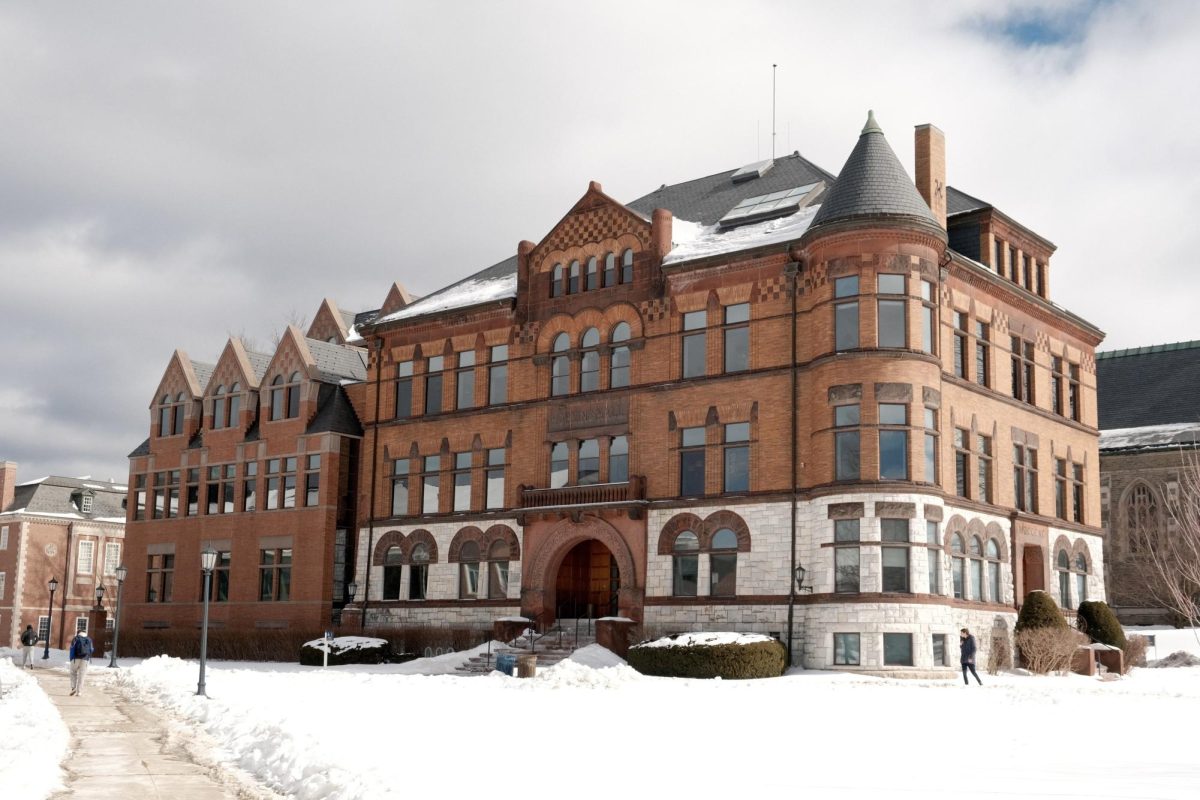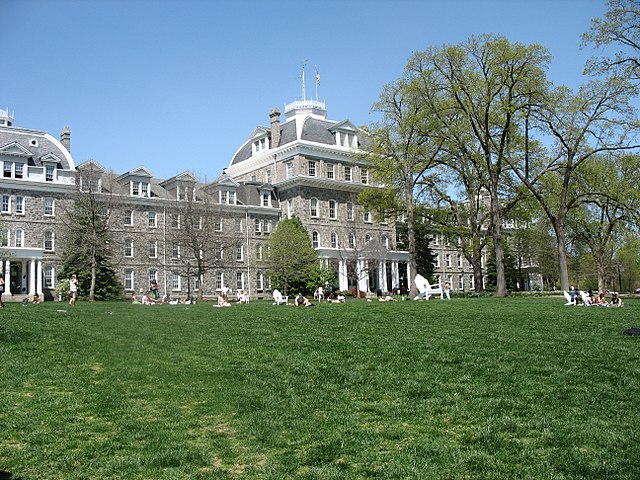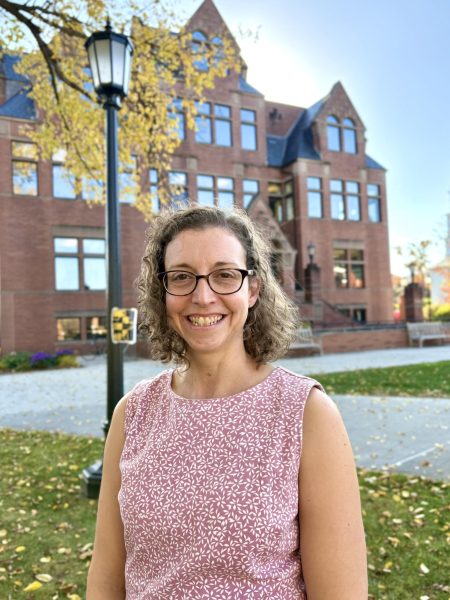
Katie Malanson began serving as the College’s inaugural director of Winter Study on Oct. 7, becoming the first College employee to exclusively manage Winter Study. In the role, Malanson will oversee both curricular and administrative aspects of the program.
Malanson will work alongside the Winter Study Program Committee — a standing committee of faculty, staff, and students — to curate and vet curricula, evaluate potential policy changes, and coordinate the administrative offices, faculty, and instructors involved in the teaching and logistical execution of the program.
Previously, Malanson worked as a curriculum developer at The Center for Science Education at Tufts Medical School.
The 2022 Ad Hoc Committee on Winter Study Teaching and Learning recommended the creation of the position, writing in its February 2023 report that the program “requires substantially more administrative support than currently exists.” The committee also suggested that faculty members no longer be required to teach Winter Study courses every other year, a recommendation that is still under consideration.
The establishment of the ad hoc committee was part of larger efforts to re-evaluate Winter Study amid growing faculty discontent with the program. In a March 5 memorandum, President Maud S. Mandel and Dean of the Faculty and Chair of the Committee on Appointments and Promotions Lara Shore-Sheppard announced the College’s intention to “launch a fully refreshed Winter Study by January 2026.”
Before the creation of the Winter Study director role, numerous campus institutions — such as the registrar’s office, the ’68 Center for Career Exploration, the Center for Learning in Action, and the academic departments that sponsor Winter Study courses — coordinated the development and implementation of Winter Study curricula, Professor of History Anne Reinhardt told the Record.
Reinhardt, who chaired the ad hoc committee, told the Record that the decentralized model created logistical problems. At times, courses by non-faculty would be vetted by departments without expertise in the subject of the proposed course.
The organization of Winter Study leadership also created a gap between the kinds of courses that students wanted to take and those that were offered. Students wanted “more hands-on classes and classes that were significantly different from what is being taught during the semester,” Reinhardt said. “[Winter Study] really needed not just administrative oversight but also curricular oversight, so that there would be space for things to change.”
Malanson said that ensuring students have access to the courses they are most interested in is one of her priorities in the new role. She plans to conduct surveys to learn more about students’ interests, she added. But Reinhardt acknowledged that it may be difficult to offer a wide slate of the kinds of experiential courses many students seek, citing a disconnect between the courses professors felt confident teaching and those that excited students. “There were some faculty who said, ‘I’m just not going to teach a course on yoga or baking,’” Reinhardt said.
Malanson said she intends to conduct “targeted outreach” to the College’s alums to help rectify this gap.
Members of both the ad hoc and standing committees emphasized that Malanson’s appointment does not mark a major departure from the fundamental purposes of Winter Study nor an intent to replace the program.
Reinhardt emphasized that, even as the program undergoes a refresh, its core principles of academic exploration and risk-taking will remain. “Winter Study’s evolving,” Reinhardt said. “I don’t think there’s this idea that now Winter Study’s going to be something totally different.”






